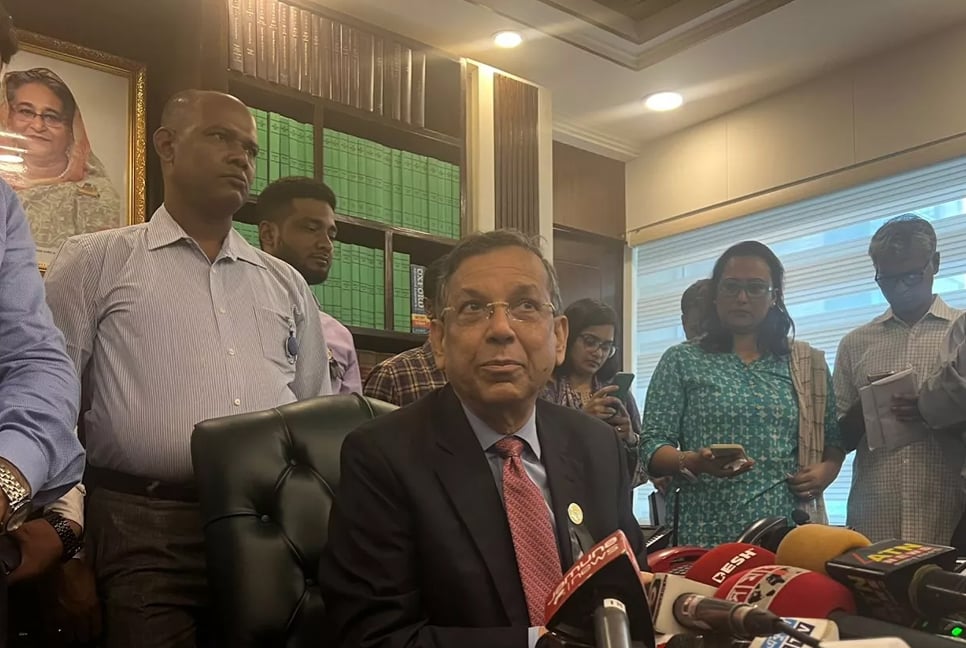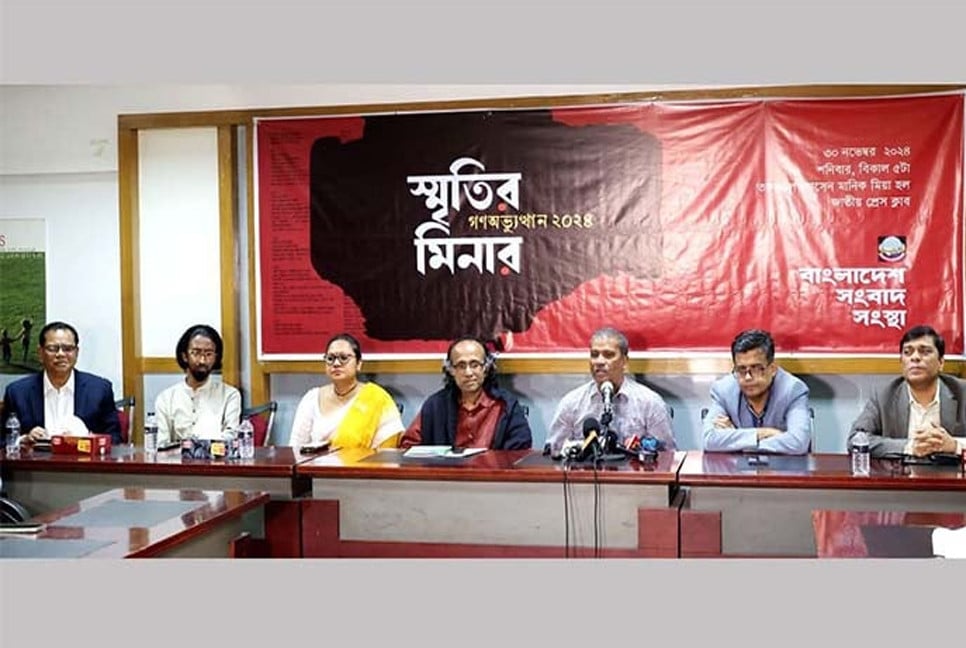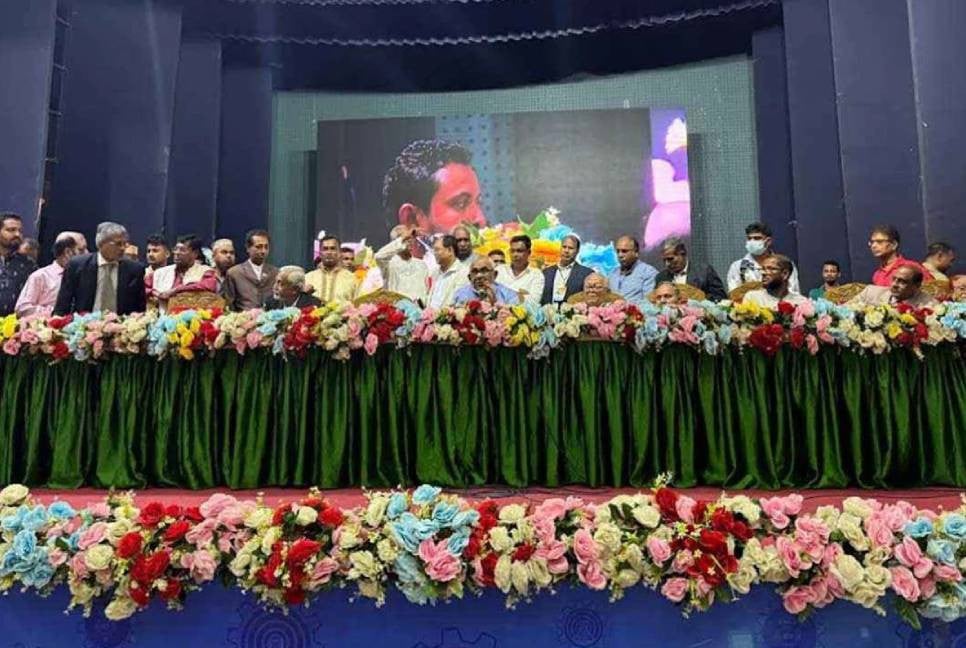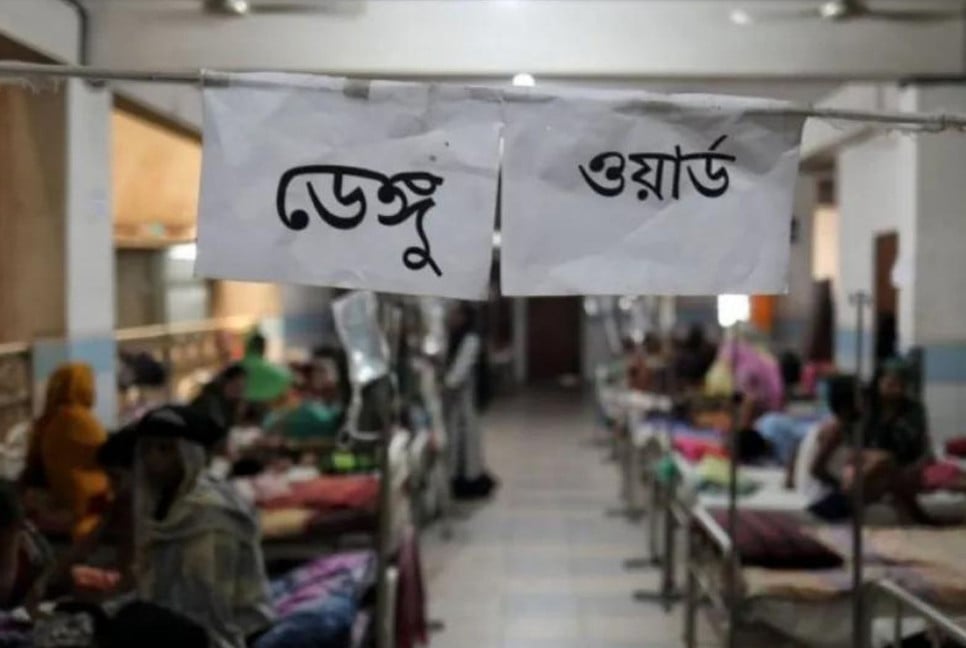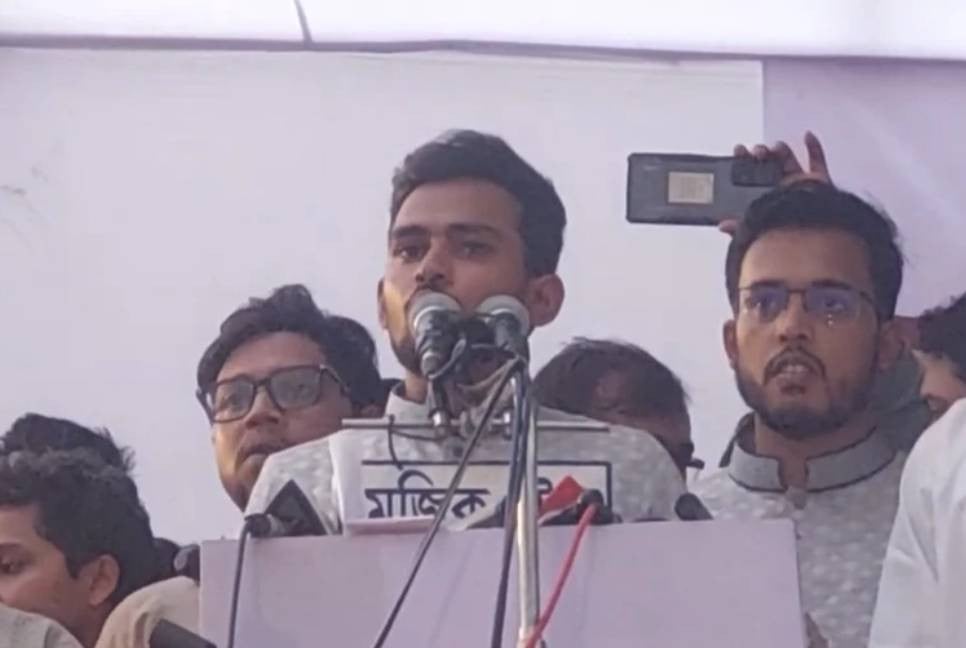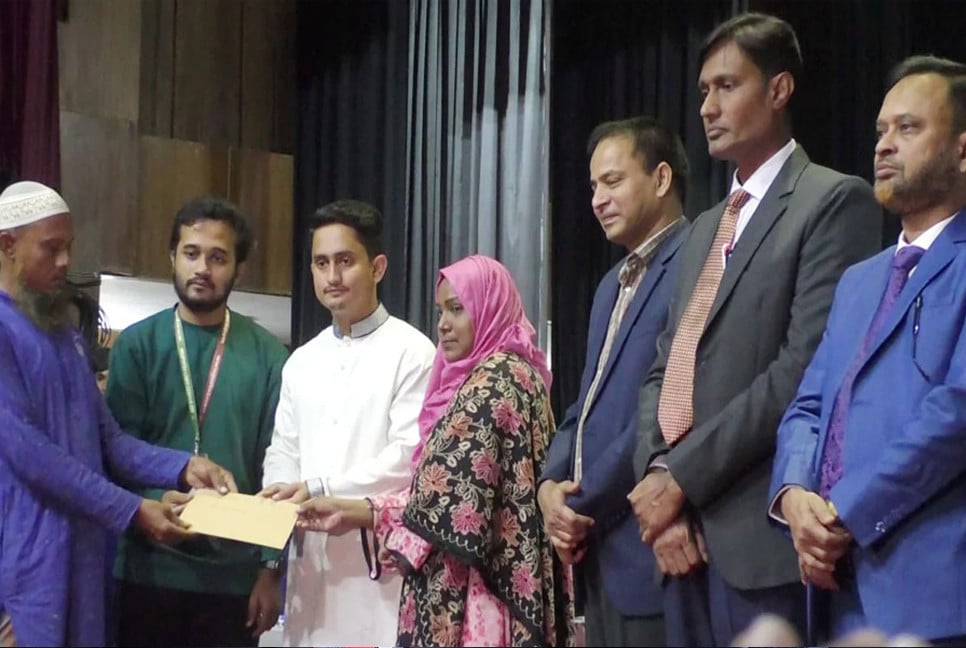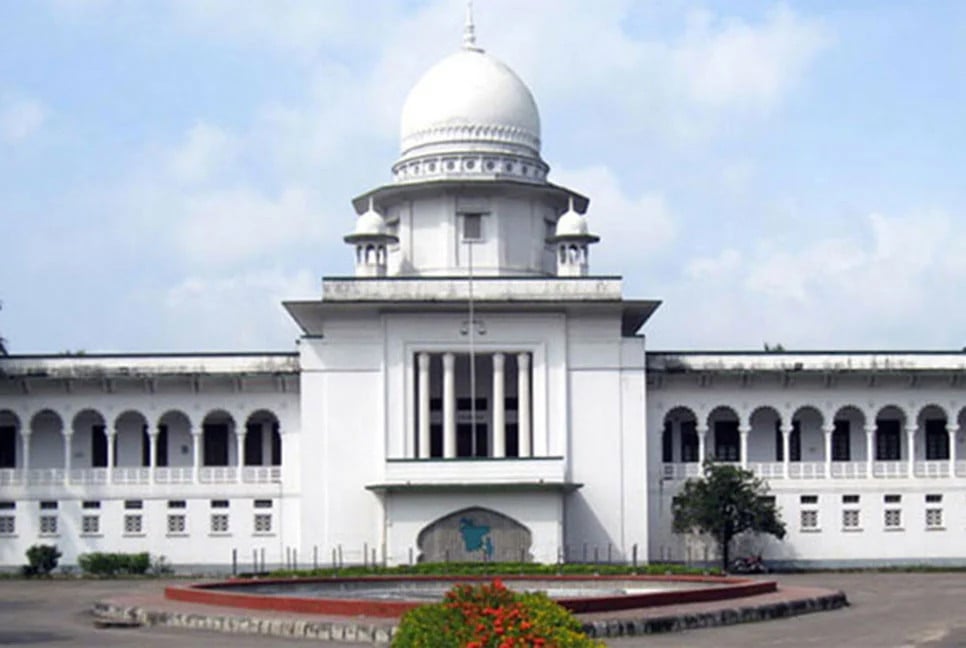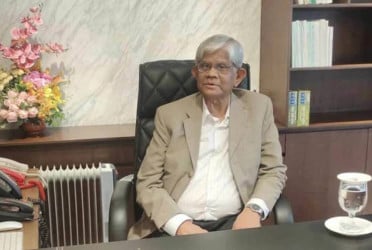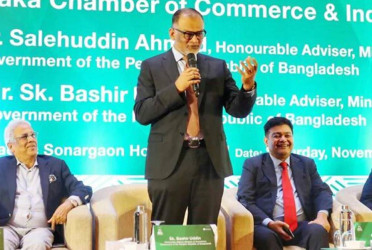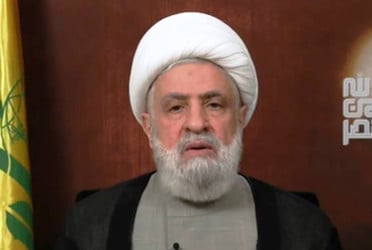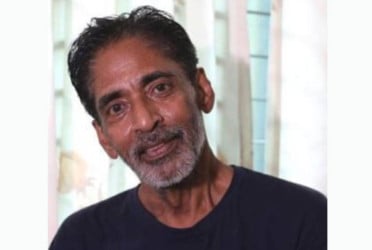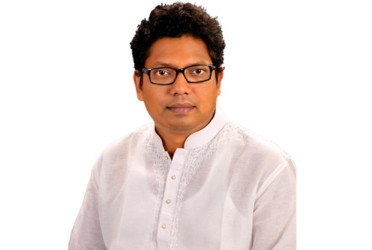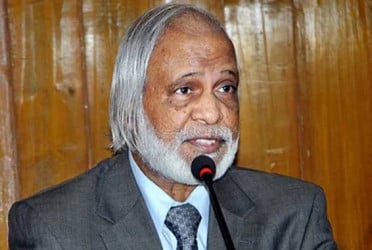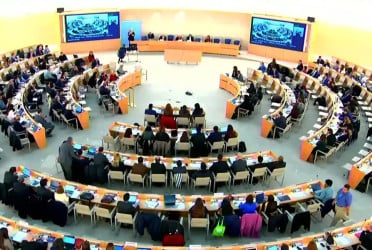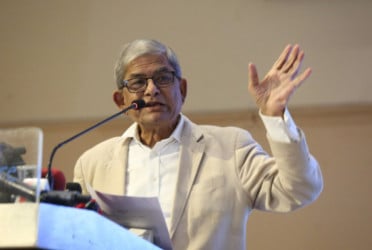Law, Justice and Parliamentary Affairs Minister Anisul Huq has said the views of stakeholders will be taken into account before finalising the draft of the "Cyber Security Act, 2023", reports UNB.
The minister said this while talking to reporters at his secretariat office on Tuesday.
Earlier on Monday, the Cabinet gave its final approval to the draft of the "Cyber Security Act, 2023".
"Parliament has been called on September 3. The final approval of the cabinet was taken yesterday so that the law can go to parliament. Stakeholders will be called to the parliamentary standing committee, and the matter will be discussed. It will be, you will know from us," said the minister.
"Yesterday, instead of the Digital Security Act, the Cyber Security Act was given final approval by the Cabinet. Previous cases will continue in accordance with the Digital Security Act; this is mentioned in the Cyber Security Act," he said.
The Cyber Security Act provides for the disposal of previous cases under the previous law. However, the government is thinking of applying lesser punishment as outlined in the new law to the previous cases, the minister said, adding, "The thing is that Article 35 of our constitution clearly states that the first thing is that the trial will be done under the law that was in force at the time of committing the crime, and the punishment mentioned in that law will be given."
"There is a point in Article 35 that if the sentence is more than what is being done in the new law, then that sentence cannot be given. In the old law, that is, the law under which the crime is committed or the law that was in force at the time of committing the crime, the punishment in that law should be the same. The second is that there can be no other sentence. We've put a lot of thought into it here," the law minister also said.
"If we take Section 21 of the Digital Security Act, the section carries a 10-year jail term. Here today, the new law, i.e., the Cyber Security Act, says five years. Then, when the learned Court, before the passing of this Act, according to the Constitution, if a crime has been committed while the Digital Security Act is in force, the court can give this 10-year sentence. We want to make a system there that does not conflict with the Constitution.
"We will put together the statements of these objects within the 10-day period given by the ICT (Information and Communication Technology) Department and present everything to the Standing Committee. We will give an opportunity to those who want to make their point here to speak before the Standing Committee as they did last time," he said.
"Reducing the sentence should not be in conflict with the Constitution. I'm thinking of a system where they live in that reduced sentence, and that's why I said now that it's passed, you'll know what I'm doing with it," he also said.
On the matter of the Nobel laureates writing letters on behalf of Dr Yunus and calling to suspend his case, the minister said, "Here is one thing; I do not want to make any statement about Dr Yunus's case. That's because this case is pending. As far as I know about this case, there is a trial in the Labour Court. He got bail when he sought bail in court, in the trial court, in that court. I also know that when he asked her to give him an exclamation to be present in court, I also got it."
"The reasons for this case, or those who are plaintiffs, also have the right to sue. I can't say anything more than that in this case. But I will say one thing that I have said before and will say again: the judiciary of Bangladesh is independent; if any injustice or crime is committed by the common people, they will be tried. But why won't learned people be judged? This culture cannot be created," he said.
Bd-pratidin English/Tanvir Raihan

